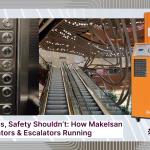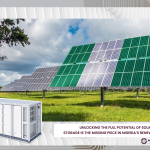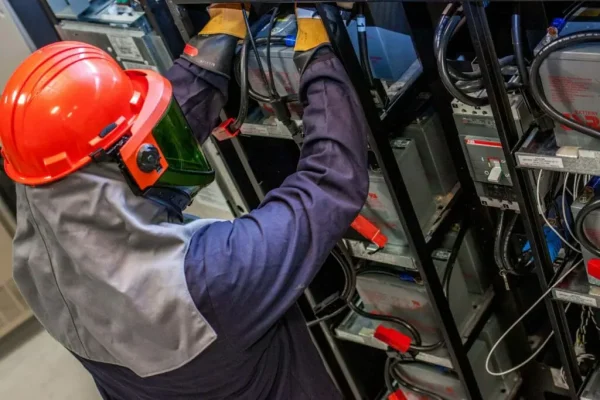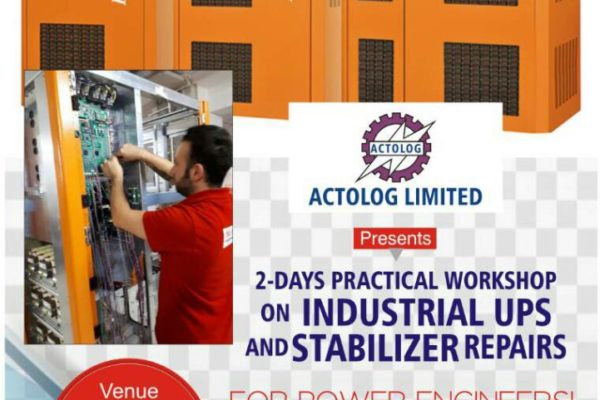UPS systems have been in general use across main industries for well over a decade now. Despite this, they are still rather unknown devices. Today we are going to look behind the curtain, by answering some of the most common questions that get asked.
1. What is a UPS?
A UPS, also known as Uninterruptible Power Supply is a device that sits between a power supply (e.g. a wall outlet) and a device (e.g. a computer) to prevent undesired features of the power source (outages, sags, surges, bad harmonics, etc.) from the supply from adversely affecting the performance of the device.
2. What can a UPS Do for you?
– UPS systems protect your critical systems from the effects of power failures, voltage dips, and power anomalies.
– During a power failure your IT systems, process control, and telephone systems would not operate, leading to missed calls/sales/transactions, loss of product/data, or loss of staff productivity.
– During power anomalies all circuits may be affected requiring systems to be re-booted, cleaned and data re-entered. The time and inconvenience caused can be a nightmare for any business.
3. What is the difference between a UPS and an Inverter?
A key difference between an inverter and a UPS is the time taken by them to provide power supply from the batteries in the event of a power failure: an off-line UPS (the standard) switches to battery power within 3 to 8 milliseconds after mains power has been lost.
An inverter changes over in anything from 25 to 500 milliseconds. Gadgets that can’t tolerate even this time lag or which may be damaged by being incorrectly shut down, such as a computer or sensitive medical equipment, are paired up with a UPS rather than an inverter, precisely for this reason.
4. How much battery backup time do I get/need?
UPS battery backup times can vary from 2 minutes to many hours. It all depends on what you need. The main question to ask before deciding on the UPS backup time is: In the event of a long power outage “what do we want to do”? We suggest having a longer backup time in order to shut down a large database, or manually shut down certain applications
5. What is the life of UPS batteries?
Small to medium UPS batteries generally have a 4-5 year design life, this can vary depending on the number and depth of discharges together with the environmental conditions i.e. temperature. For larger UPS systems batteries with an 8-10 year design life are generally used. We advise that the UPS batteries are checked/tested/discharged periodically to ensure that they still function correctly.
6.Can I support an Air-Conditioning unit on a UPS?
Air-Conditioning can be considered as a “dirty” load due to continual switching causing voltage and current spikes and surges. The UPS (Uninterruptible Power Supply) module can cater for a certain level of overload for a small duration, however, the duration and level of current surges typically associated with A/C units is far greater than the UPS’ capability. Therefore it is advised not to support the AC on a UPS and supply this element with a generator only if possible. If there is no option but to support the AC using a UPS, it is normal to oversize the inverter by 4-5 times to ensure that the unit will cater for this more demanding load and eliminate any risk to the critical load. Another sensible approach to reducing any risk is to the critical load is to have a separate dedicated UPS for the A/C requirement.
7. Will my UPS (Uninterruptible Power Supply) last 24 hours?
The most common misconception about UPS (Uninterruptible Power Supply) runtime is that it can last for 24 hours or even longer. Unfortunately, without excessive cost and space, this is impossible. Currently, UPS systems are only suitable for a short power cut solution. This means it is best used to allow for a safe shut down of equipment in the event of a power cut or as a stop-gap, to keep the power running while a long-term solution starts up (like a diesel generator.) To run for 24 hours, you would need lots of batteries to store the required power. These would not only take up a lot of space but would probably cost more than a longer-term solution, like a diesel generator.
8. What is a UPS Bypass Switch?
UPS bypass switches are used to bypass the UPS (Uninterruptible Power Supply) normal operation, in cases of high inrush or fault conditions. This normally allows the UPS (Uninterruptible Power Supply) to be serviced or repaired while the load works normally.
9. How does temperature affect a UPS Battery?
One of the most important factors of UPS battery aging and performance is the temperature. 20°C is the optimum UPS battery temperature. At 30°C the UPS battery’s design life halves. If the temperature around a battery set is not controlled, the UPS battery can fail to result in a costly battery replacement, and invariably UPS (Uninterruptible Power Supply) downtime.
If you have any other questions not answered here, why not contact us and we will do our best to help. Actolog Solutions Ltd. is the sole distributor of Maklesan UPS in Nigeria. We procure, sell and repair UPS, Inverters, and other backup equipment for Industrial loads, Data Center, Medical types of equipment, Home/office equipment.









I just could not depart your site prior to suggesting that I actually enjoyed the standard information a person provide for your visitors? Is going to be back often in order to check up on new posts
Good blog post. Some tips i would like to bring up is that personal computer memory has to be purchased if the computer still cannot cope with that which you do by using it. One can put in two good old ram boards containing 1GB each, by way of example, but not certainly one of 1GB and one having 2GB. One should check the manufacturer’s documentation for the PC to make certain what type of storage is needed.
Great site. Plenty of useful info here. I’m sending it to several friends ans also sharing in delicious. And naturally, thank you for your sweat!
What’s up to every single one, it’s truly a pleasant for
me to go to see this web page, it includes priceless Information.
I deeply admire how you effortlessly break down complex concepts into easily digestible parts. Impressive work!